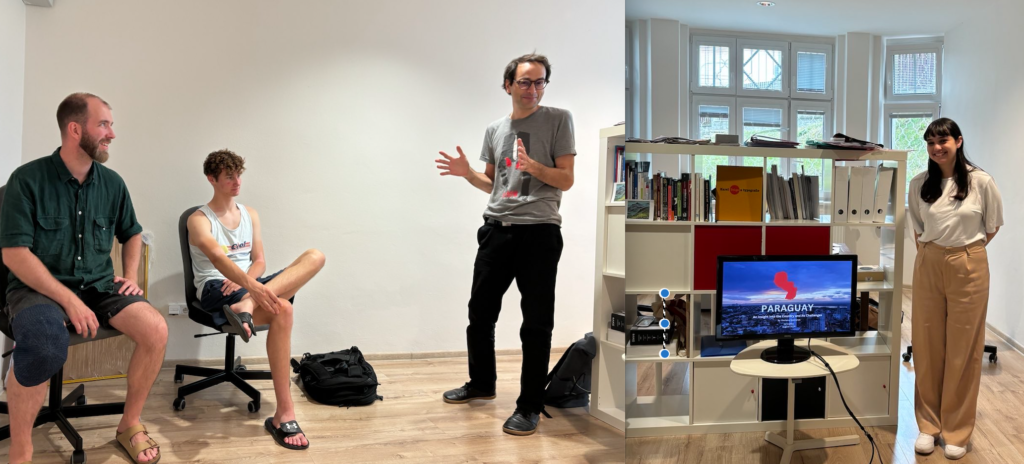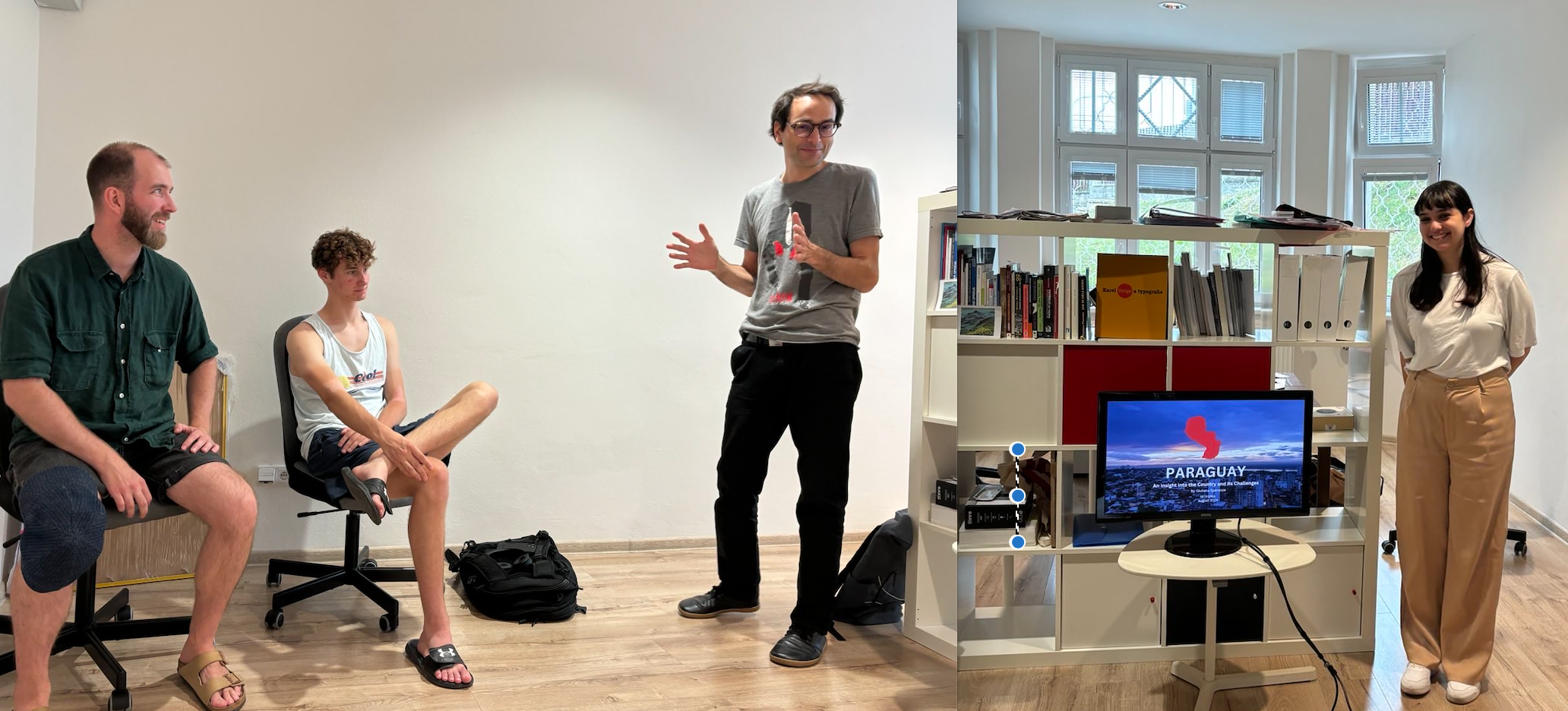Giuliana finished her internship at Integria. Here is her final reflection on the nine weeks with us…

During a nine-week internship at Integria, an NGO in Prague dedicated to promoting democracy and human rights in Southeast Asia, I engaged in a range of activities that provided both practical experience and academic insights. The internship began with an introduction to the organization’s work through events like a private screening of a documentary and meetings with activists. Here I got to know some of the topics and communities that Integria deals with, how they are involved with them and a little bit of what they do. For the first weeks, my primary tasks included compiling an extensive document on the European Union, how it works, its laws, sanctions, and immigration policies alongside presentation material. Additionally, I researched the Myanmar diaspora in Europe, one of the communities that Integria works with, initially focusing on the Czech Republic but later expanding to other regions due to limited local information.
A significant part of the internship involved creating a podcast episode for Integria’s Pacifica series, which explored the immigration journeys of Myanmar refugees, their experiences in countries like Sweden, the challenges they face, and the support available abroad. I conducted two interviews, one with a Myanmar refugee in Sweden and another with the Executive Director of Burma Center Prague, and then worked on recording, editing, and refining the podcast script. Despite technical difficulties, I and another intern successfully completed the recordings and learned to adjust their tone and presentation style to better engage the podcast’s audience. Despite some technical issues at first we were still able to record with time and make the changes whenever needed. Here I learned a lot about how to make a script that is not too academic but still sounds clean and informs with data about the situation in Myanmar. I also learned how to strategically cut certain information or combine it to not make the script extremely long.
The internship concluded with me presenting insights about Paraguay to the Integria team who didn’t know much about Paraguay and also receiving positive feedback on the work completed. In parallel, I progressed on my final research paper for my Master’s programme, refining the focus to examine how members of the Myanmar diaspora sustain political and social activism in the face of state repression and international challenges. This involved transcribing interviews, identifying key themes, and analysing the data. Throughout the internship, I felt well-supported by Integria and I believe that the work that I did could be developed further by new interns since the ultimate goal with the European Union document is to create a handbook for migrants to use that informs them about how the EU works, how laws and sanctions are imposed and learn about the immigration legislation in the different countries of the EU. I think the podcast series could also benefit from new perspectives and continue to be developed by new interns. Furthermore, since Integria is an organisation that was founded recently, new interns might also benefit from continuing to make Integria grow and help out in whatever project is being worked on. My supervisor also gave me a lot of instruction and we would discuss at least one day in the week the goals and plans for the week and the progress done by the end of it. This allowed me to always know what I was supposed to do or gave me soft deadlines to follow through. If this is something other interns prefer to have, then this is a great option to consider.
I believe that the research I have done both for the European Union document and the podcast has helped me to improve my research skills for future endeavours and has also taught me how to design a podcast episode, something that I had not done before. I can imagine myself working in the future with more NGOs since I believe every NGO especially ones that work with migrants, refugees and migrant diasporas can teach you a lot about current situations, conflicts, wars and crises and put you in contact with the people closest to it too. At the same time, through conducting research I have learned more about interviews, how to craft questions, come up with follow-up questions, and be aware of sensitive topics and questions, among other things. I would recommend this internship to anyone interested in learning more about Southeast Asia and who is willing to do research, but also someone who is not afraid to voice out ideas, brainstorm and work together with other people and organisations.
